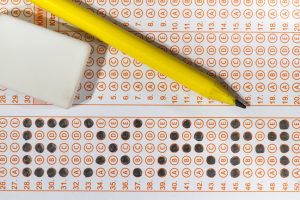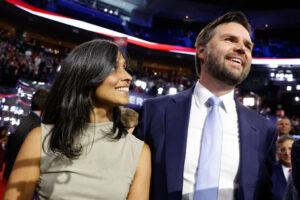HARARE
–
The
Citizens
Coalition
for
Change
party
led
by
Jameson
Timba
on
Wednesday
suffered
a
setback
in
its
bid
to
claim
ZiG
22.1
million
under
the
Political
Parties
(Finance)
Act
after
a
judge
ruled
that
its
application
seeking
to
bar
the
government
from
disbursing
the
money
to
rival
factions
was
not
urgent.
The
CCC
party
is
split
three-way
with
Timba’s
faction
pitted
against
two
others
led
by
Welshman
Ncube
and
Sengezo
Tshabangu.
All
three
factions
have
written
letters
to
justice
minister
Ziyambi
Ziyambi
demanding
to
be
given
the
funds
due
to
the
CCC
after
the
party
emerged
as
the
main
opposition
in
elections
held
in
August
last
year.
A
share
of
political
party
funds
is
calculated
based
on
a
party’s
electoral
performance
at
the
last
general
election.
Zanu
PF
is
getting
the
lion’s
share
of
ZWG
47.9
million.
Timba’s
CCC,
in
its
High
Court
application
launched
on
September
29,
cited
the
justice
minister,
finance
minister
and
Tshabangu
as
first,
second
and
third
respondents.
The
CCC
led
by
Ncube,
and
Ncube
himself,
later
applied
for
a
joinder
which
was
granted
without
opposition.
The
Timba
faction,
made
up
of
loyalists
of
former
leader
Nelson
Chamisa,
asked
the
High
Court
to
issue
an
order
interdicting
Ziyambi
and
finance
minister
Mthuli
Ncube
“from
disbursing
the
sum
of
ZiG
22,116,500
or
any
portion
therefore
or
any
other
sums
of
money
due
to
the
Citizens
Coalition
for
Change
(CCC)
to
3rd
Respondent
(Tshabangu)
or
to
any
one
acting
on
his
behalf
or
to
anyone
else.”
Justice
Faith
Mushure,
in
an
October
16
judgment,
said
Timba’s
CCC
had
failed
to
establish
that
the
application
was
urgent.
The
judge
said
Timba
had
written
a
string
of
letters
to
Ziyambi
starting
on
October
16
last
year
requesting
that
the
CCC
allocation
be
deposited
in
a
particular
bank
account
number
of
the
party.
The
party
said
it
acted
out
of
concern
following
media
reports
that
the
government
intended
to
pay
out
the
money
to
Tshabangu,
who
emerged
after
last
year’s
elections
claiming
to
be
the
CCC’s
secretary
general.
Ziyambi,
contrary
to
legal
requirements,
ignored
Timba’s
letters.
Said
Justice
Mushure:
“The
provisions
of
section
4(2)
of
the
Act
are
couched
in
peremptory
terms.
The
first
respondent
(Ziyambi)
was
obliged
to
respond
to
the
application.
He
did
not.
Contrary
to
the
applicants’
averments
that
they
could
not
act
before
the
gazettement
of
the
funds
to
be
allocated
in
terms
of
the
Act,
the
first
applicant’s
right
to
response
was
triggered
by
the
lodgement
of
an
application
for
funds
in
terms
of
the
Act
and
not
the
gazettement
of
the
intended
allocation.
See
section
4(1)
of
the
Act.
“Despite
this,
the
first
applicant
(Timba
CCC)
did
not
do
anything
to
assert
its
right
to
that
response
from
the
first
respondent
from
October
16,
2023,
until
September
27,
2024,
when
they
filed
the
current
application.
“In
light
of
the
above,
the
applicants
cannot
now
argue
that
the
cause
of
action
arose
on
September
19,
2024,
when
the
first
respondent
(Ziyambi)
did
not
respond
to
their
letter.
This
was
not
the
first
time
that
the
first
respondent
had
not
responded
to
their
letter.
For
close
to
a
year,
the
first
respondent
had
not
responded
to
their
letters.
“The
applicants
could
afford
to
wait
for
the
first
respondent’s
response
for
three
or
four
months,
then
follow
up
with
another
letter.
At
the
very
last
minute,
they
then
decided
to
give
the
first
respondent
an
ultimatum
to
respond
within
48
hours,
failing
which
they
would
approach
the
court…
“On
the
facts
placed
before
me,
there
was
an
undue
delay
and
laxity
on
the
part
of
the
applicants
in
bringing
this
application
to
court.
The
factual
circumstances
giving
rise
to
this
urgent
application
were
known
to
the
applicant
and
have
been
ongoing
since
at
least
October
16,
2023.
The
applicant
took
no
steps
for
a
considerable
period
to
prevent
the
irreparable
harm
it
now
perceives.
An
applicant
is
expected
to
have
acted
with
the
same
urgency
it
wishes
that
the
matter
be
accorded.
The
expectation
is
that,
faced
with
the
alleged
failure
to
respond
from
the
first
respondent
and
the
conflicting
media
reports,
the
applicant
would
have
reacted
immediately
to
remedy
the
irreparable
harm,
rather
than
standing
back
and
doing
nothing
until
it
was
too
late.”
The
judge
also
rejected
the
Timba
CCC’s
claims
that
it
would
suffer
irreparable
harm
if
the
funds
were
released
to
rival
factions.
“The
applicants
allege
that
if
the
application
is
not
determined
now,
they
will
suffer
irreparable
harm.
They
argue
that
if
the
funds
are
disbursed
to
anyone
other
than
the
first
applicant,
there
is
no
way
of
recovering
them.
They
further
argue
that
the
amount
is
substantial
and
that
the
third
respondent
cannot
pay
it
back.
The
applicants
do
not
give
cogent
reasons
for
holding
these
views.
They
simply
make
bare
allegations,”
Justice
Mushure
noted.
“In
my
view,
if
the
application
is
not
determined
now,
the
first
applicant
does
not
irretrievably
lose
its
right
to
recover
the
money.
Neither
will
the
first
applicant
lose
its
right
to
the
money.
The
first
applicant’s
right
to
the
money
remains
open,
even
if
the
matter
is
not
dealt
with
urgently.
“…
I
consider
that
the
application
must
also
fail
on
the
aspect
of
consequence.
The
perceived
irreparable
harm
that
the
first
applicant
will
suffer
is
not
properly
substantiated.
“I,
therefore,
find
that
the
applicants
have
not
made
a
case
for
urgency.
If
anything,
the
urgency
of
the
applicants’
claim
is
self-created…
Accordingly,
I
make
the
following
order:
‘The
urgent
chamber
application
for
an
interdict
be
and
is
hereby
struck
off
the
roll
of
urgent
matters
for
lack
of
urgency
with
costs’.”
Ncube
deposed
an
affidavit
stating
that
his
party
was
the
legitimate
CCC
which
should
get
the
funding.
He
opposed
the
application
by
Timba’s
faction
arguing
that
it
was
not
urgent.
Said
the
judge.,
“I,
therefore,
find
that
the
applicants
have
not
made
a
case
for
urgency.
If
anything,
the
urgency
of
the
applicants’
claim
is
self-created…
Accordingly,
I
make
the
following
order:
‘The
urgent
chamber
application
for
an
interdict
be
and
is
hereby
struck
off
the
roll
of
urgent
matters
for
lack
of
urgency
with
costs’.”
The
ruling
leaves
the
door
open
to
ministers
to
release
the
funds
to
any
of
the
three
factions
at
their
whim.
Judge
rules
Chamisa
allies
had
failed
to
establish
that
the
application
was
urgent
 Chris
Chris














